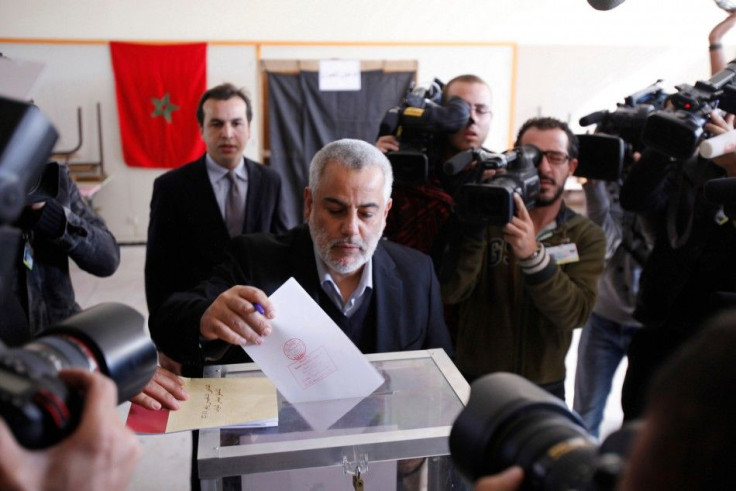Low Turnout Expected in Moroccan Parliamentary Elections

Morocco is in the midst of parliamentary elections, following the establishment of a new constitution (approved by referendum in July), one of the reforms enacted by King Mohamed VI.
Under terms of the new constitution, the king will appoint a new prime minister from the party that gains the most votes in the poll -- whereas, before, the monarch named whoever he wanted. The constitution also provides greater powers to the prime minister and parliament. For example, the PM will now have the right to appoint government officials and dissolve parliament.
However, the king reserves the right to dictate policy on such crucial issues as defense, religion and national security.
About 13.6 million Moroccans will be eligible to vote for the 395-member parliament.
On the extreme northeastern part of Africa, the kingdom of Morocco has largely avoided the bloodshed and turmoil experienced in most other Arab countries in this epochal year of revolution.
The moderate Islamists of the Justice and Development Party (PJD) is among the favorites to score a significant number of seats in parliament
However, Communications Minister Khalid Naciri told Agence France Presse (AFP): The strongest party will not capture more than 16-18 percent of the vote. The formation of a [government] majority will be tough and it is hard to make predictions.
Turnout is expected to be modest amidst cynicism that the king will actually diminish his authority over the country’s affairs.
Nora Fakim, a BBC correspondent in Rabat, Morocco, wrote that there is an aura of skepticism and apathy over the whole election.
“The general mood of expectation is not high,” she said. “The elections will be a test of whether King Mohamed VI will actually withdraw some of his powers as promised in the new constitution which he put forward and was adopted in July.”
She added: “Many of the Moroccans I interviewed today said they were not going to vote because they believe the new constitution does not go far enough.”
Indeed, the pro-democracy “February 20 movement” has called for a boycott of the election.
I am not going to vote and I say it with my head held high, a housewife named Aicha told AFP.
Another Moroccan told Associated Press: The parties have presented the same people for the past 30 years. The least they could do is change their candidates.
Al Jazeera reported that on Thursday, one thousand unemployed college graduates demonstrated in Rabat calling for a boycott of the election and demanding jobs.
Protesters were hoping for the establishment of a true constitutional monarchy.
Another daunting obstacle for pro-democracy activists is the widespread popularity and reverence given to the king and the royal family by the vast majority of Morocco’s poor and illiterate population.
Morocco has been ruled by the Alaoui dynasty -- which claims to be descended from the Prophet Muhammad himself -- since 1664.
Political parties, therefore, are reluctant to directly criticize the king, who is, in effect, viewed as commander of the faithful.
Nonetheless, Omar Bendourou, a constitutional law professor at Rabat's Mohamed V University, told Al-Jazeera, that low voter turnout would embarrass the government and suggest that the public does not believe the promised reforms will come to fruition. A high turnout would provide some much-needed legitimacy.
A strong turnout in the 2011 elections would give credibility to the constitutional reform adopted in July,” he said.
And it would give them some credibility, a favorable image abroad of how the kingdom responded to protests.
© Copyright IBTimes 2024. All rights reserved.











